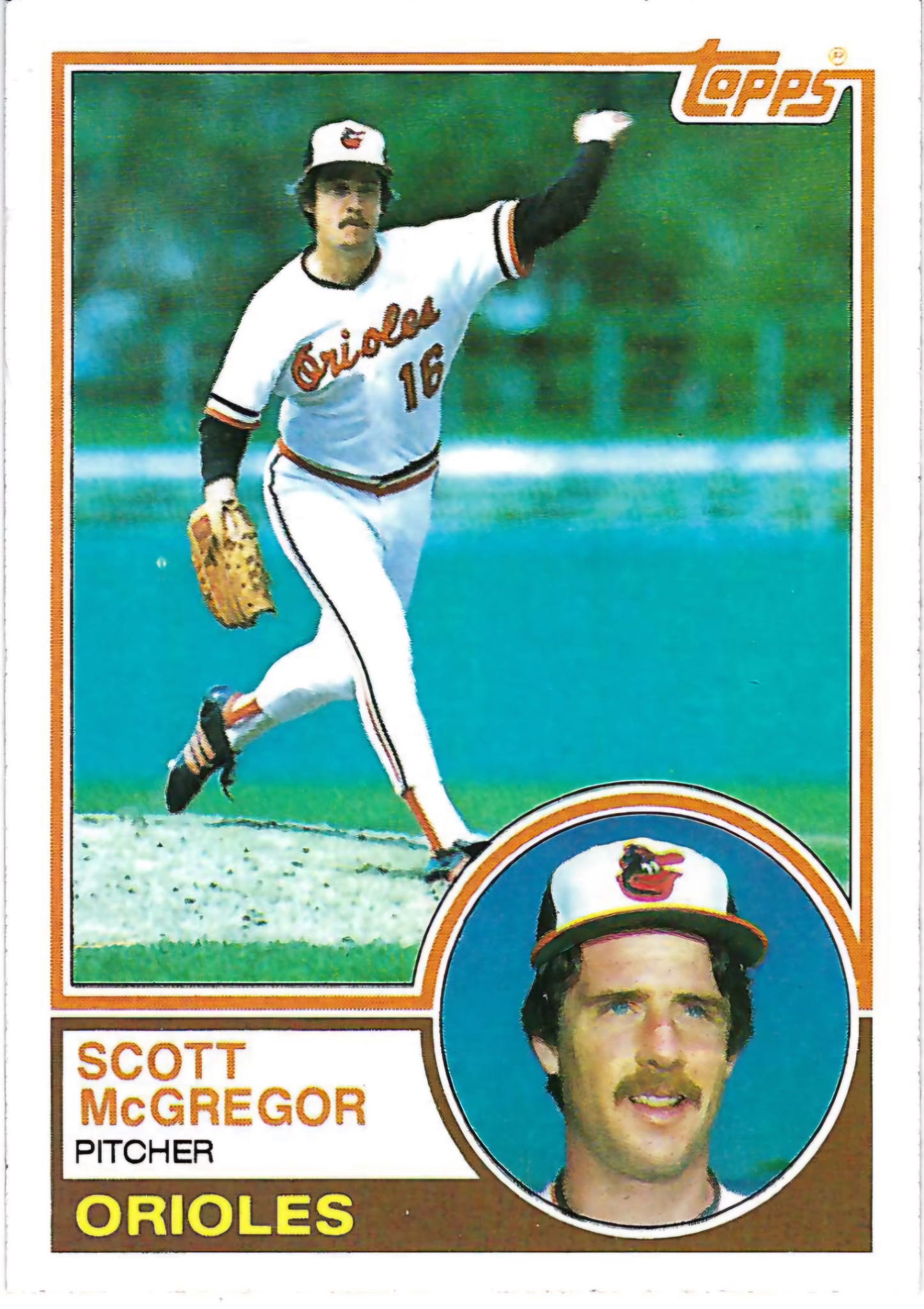When I wrote my book on Orioles history a quarter-century ago, I discovered that many players from the late ‘70s and early ‘80s relished recounting their tales of incendiary run-ins with Earl Weaver, the club’s famously volatile manager.
But Scott McGregor doesn't have any such tales, and as he sees it, there’s a simple explanation.
“I pitched really well for him so he left me alone. Earl and I got along fine,” McGregor told me during a recent conversation, which, with this post, is now available to paid subscribers as the latest addition to the Bird Tapes archive.
Now 71 and a longtime Baltimore-area resident, McGregor did indeed deliver for years as a mainstay in the Orioles’ starting rotation. He won 138 games, including 20 in 1980. A staggering 27 percent of his 309 starts over 13 seasons ended with him throwing a complete game.
Weaver famously held his starting pitchers to high standards, demanding that they throw strikes and pitch deep into games. McGregor met those standards and actually gave Weaver (and successor Joe Altobelli) even more. When they needed a steadying presence for big occasions, they knew they could count on McGregor, who went 3-1 with a 1.63 ERA in six postseason starts.
During our conversation, we touched on a whole host of subjects, including how McGregor became a winning pitcher. He’d been stuck in the Yankees’ farm system, throwing hard with inconsistent results, when the Orioles acquired him in 1976. Weaver, who doesn't get enough credit for his masterful handling of pitchers over the years, asked him to reinvent himself as a relative soft-tosser whose three pitches arrived at the plate at dramatically different speeds.
“Earl taught me to change speeds. That’s pitching,” McGregor told me.
Meanwhile, he benefitted from having a teammate who was the best example any pitcher could have — Jim Palmer, the future Hall of Fame inductee who had eight 20-win seasons for the Orioles.
“Palmer was the pitching coach,” McGregor said flatly. “He and I and (Mike) Flanagan did everything together. He taught us how to pitch, how to work through a game. It was quite the education.”
Most fans remember McGregor best for throwing a shutout to clinch the Orioles’ victory over the Phillies in the 1983 World Series, and that’s certainly one of his favorite moments. But he grew up in Southern California, and in his memory bank, nothing tops the six-hitter he threw on the road to clinch the Orioles’ victory over the Angels in the 1979 American League Championship Series.
His arm and his stuff eventually petered out, prompting the Orioles to release him in 1988. After a pause, he returned to the game and had a long run as a minor league instructor and coach for the Orioles. Although they parted ways with him when Mike Elias became the GM and retooled the minor league system in 2019, he still goes to spring training, puts on an Oriole uniform and counsels the pitchers.
Needless to say, today’s young fireballers have a hard time imagining how he won so many games with a fastball topping out at 87 mph.
(Note from John Eisenberg: Published here as a podcast, the McGregor interview can be downloaded to your preferred device and/or consumed on apps such as Apple Podcasts or Spotify. Click on the “subscribe now” button to upgrade from free to paid and gain access to my entire archive of interviews with former Oriole players, front office executives, scouts, managers, broadcasters and beat writers.)
Listen to this episode with a 7-day free trial
Subscribe to The Bird Tapes to listen to this post and get 7 days of free access to the full post archives.













